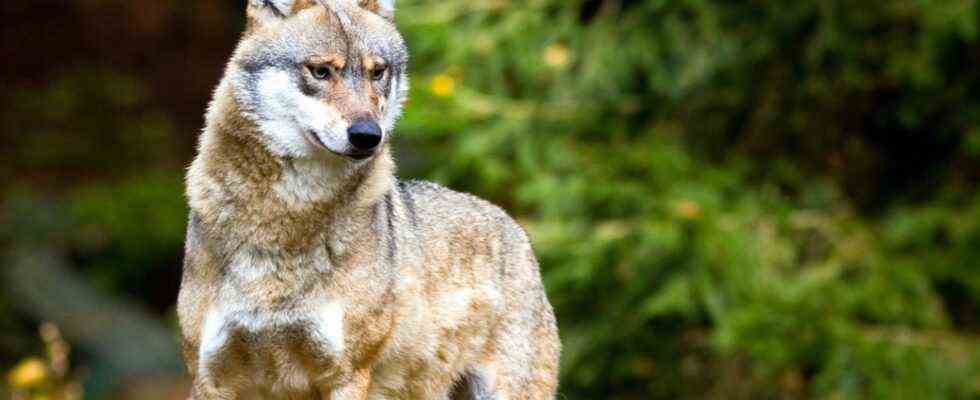The Free State is very generous with herd protection and payments for sheep and goats killed by wolves. The Ministry of the Environment admits that he cannot weaken the strict protection of the predators.
It is undoubtedly a huge shock to a farmer to discover that his sheep were attacked by a wolf in the pasture during the night. The bloody carcasses are a gruesome sight. That is why it is easy to understand when the farmer is overwhelmed by an irrepressible rage and powerlessness at such a moment. It usually only takes a few hours before a politician demands that a wolf that kills farm animals must be shot, the predators simply do not fit into the densely populated Free State.
In the heated argument, it is mostly forgotten that there are narrow limits to dealing with wolves and that the Free State is doing a lot to protect farmers and livestock. This was shown in a report by the Environment Ministry in the state parliament on Thursday. The experts from Environment Minister Thorsten Glauber (FW) have made it clear that the wolf is strictly protected by European and German nature conservation law. Kills are only possible in absolute exceptions, for example when people are in danger. All of the Free State’s initiatives to change this have failed. However, Bavaria could not make any regulations that deviate from European and German nature conservation law.
Especially since the Free State has so far suffered comparatively little from the wolf. A few figures show that. According to the Ministry of the Environment, 157 packs, 27 loyal wolf pairs and 29 individual animals were counted nationwide in the current wolf year. A pack includes between five and six wolves. So in Germany there are between 850 and 1000 wolves. In Bavaria – the largest federal state with a correspondingly large number of possible wolf territories – there are four packs, a local pair and four localized individual animals, i.e. around 30 wolves.
Calls for quick kills
Cracks in farm animals are also rare in Bavaria. In 2020, the Ministry of the Environment counted ten wolf attacks across Bavaria, in which 38 farm animals were killed. This year the order of magnitude has been the same so far. In the much smaller Mecklenburg-Western Pomerania, where, according to the Ministry of the Environment, there are three times as many wolves as in Bavaria, there were 90 wolf attacks with 450 killed and injured farm animals. Nevertheless, the Free State is doing a lot to protect farmers and livestock. For example, within two years he paid out almost five million euros in funding to farmers for protective fences. The purchase of guard dogs is also subsidized. And unlike Baden-Württemberg, for example, which only promotes fences against animals that are true to their location, Bavarian farmers also receive money for protection against wolves passing through.
All of this will not silence the calls for quick kills. That has also become clear in the state parliament. CSU and FW insist on the rapid lowering of the strict protection – even if there is no sign of success. Especially since the courts are careful to ensure that EU nature conservation law is followed. This is shown by a current example from Tyrol. A court there recently suspended the shooting license for a wolf in Sellrain until the case was decided. The state government had to call off the hunt for the male dog, which is said to have killed around 50 farm animals, by return of post.

